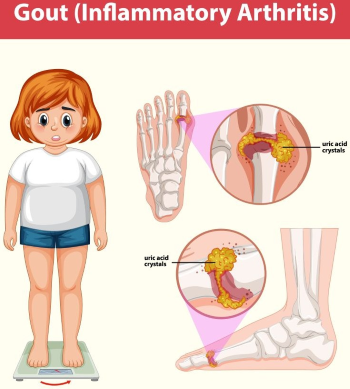Arthritis is one of the most common age-related health issues impacting men over 50. This is characterized by inflammation and stiffness in the joints. Arthritis can cause chronic pain and limit mobility. It reduces the quality of life. Dealing with arthritis requires a combination of medication, lifestyle changes, and a positive mindset to manage pain and improve mobility
In this blog, we’ll explore the basics of arthritis, highlight actionable tips for managing symptoms. We will delve into treatment options that can help men over 50 regain control of their health and mobility. Whether you’re newly diagnosed or looking for ways to better manage this condition, this guide has you covered.
Table of Contents
Understanding Arthritis
Arthritis refers to a group of conditions that cause inflammation in the joints. Over 100 types of arthritis exist, but some are more prevalent as we age. Wear and tear, inflammatory reactions, or the buildup of uric acid crystals can all cause arthritis in men over 50.
While arthritis may not have a definitive cure, it is manageable through lifestyle changes, medication, and alternative therapies. For a deeper look into arthritis, visit Arthritis Foundation.
Common Types of Arthritis in Men Over 50

Osteoarthritis

What It Is: Osteoarthritis, sometimes called “wear-and-tear arthritis,” is a condition that develops when the cartilage that cushions the joints progressively deteriorates.
Symptoms:
- Joint stiffness, especially after periods of inactivity
- Pain during movement
- Swelling around affected joints
Management:
Lifestyle changes, weight management, and physical therapy can help alleviate symptoms.
Rheumatoid Arthritis
What It Is: An autoimmune disease causes inflammation and damage to the joints when the immune system unintentionally targets them.
Symptoms:
- Joint swelling and redness
- Morning stiffness lasting more than 30 minutes
- Fatigue or loss of appetite
Management:
Medications such as immunosuppressants and anti-inflammatory drugs can help reduce symptoms.
Gout
What It Is: Uric acid accumulation in the blood leads to gout by forming crystals that lodge in the joints, particularly the big toe. This is called Gout.

Symptoms
- Sudden, severe joint pain
- Swelling and redness
- Warmth around the affected joint
Management:
Dietary changes and medications like allopurinol can help lower uric acid levels and prevent flare-ups.
Symptoms of Arthritis
Understanding the symptoms of arthritis is crucial for timely intervention. Common signs include:
- Joint pain, stiffness, or swelling
- Limited range of motion
- Warmth or redness around affected joints
- Increased discomfort after activity or prolonged inactivity
If you experience persistent symptoms, consult a healthcare provider for diagnosis and treatment options.
Lifestyle Adjustments for Arthritis Management
Diet and Nutrition
- Anti-Inflammatory Foods: Incorporate foods rich in omega-3 fatty acids (like fish, nuts, and seeds), leafy greens, and antioxidant-rich fruits such as berries to combat inflammation.
- Avoid Trigger Foods: Limit sugar, red meat, and refined carbs, as these can exacerbate inflammation.
- Hydration: Drink plenty of water to maintain joint lubrication and overall health.
Exercise and Physical Activity
Regular exercise is vital for managing arthritis. While it may seem counterintuitive to move sore joints, physical activity strengthens muscles, reduces stiffness, and improves overall joint health.
Best Exercises for Arthritis:
- Low-Impact Aerobics: Walking, swimming, and cycling reduce stress on joints.
- Strength Training: Strengthen muscles to better support affected joints.
- Stretching: Improve flexibility and reduce stiffness.
Stress Management
Stress can worsen arthritis symptoms by heightening inflammation. Effective stress management techniques include:
- Mindfulness and Meditation: Reduce stress hormones through daily meditation practices.
- Yoga: Combines gentle stretching with relaxation techniques.
- Deep Breathing Exercises: Calm the nervous system and promote relaxation.
Treatment Options for Arthritis
Treatment Options for Arthritis
- Medications:
Nonsteroidal anti-inflammatory drugs (NSAIDs), corticosteroids, and disease-modifying anti-rheumatic drugs (DMARDs) are commonly prescribed. - Physical Therapy:
Helps improve joint mobility and strengthen surrounding muscles. - Assistive Devices:
Braces, splints, and specialized footwear can reduce strain on affected joints. - Surgical Intervention:
In severe cases, joint replacement surgery may be necessary.
Conclusion
For men over 50, dealing with arthritis doesn’t have to mean living with constant pain or reduced mobility. By understanding the different types of arthritis, recognizing symptoms early, and incorporating lifestyle changes like diet, exercise, and stress management, you can effectively manage this condition. Whether through medical treatments or daily wellness practices, the goal is to maintain joint health and continue enjoying an active and fulfilling life. Take control of your arthritis management today and consult a healthcare provider for personalized guidance
Disclaimer
The information provided in this blog is for educational purposes only and does not replace professional medical advice, diagnosis, or treatment. Always consult a qualified healthcare provider regarding arthritis symptoms or before starting any new treatment plan. The author and publisher assume no responsibility for outcomes related to the use or application of the information provided.
FAQ: Frequently Asked Questions
Is arthritis preventable?
While you may not be able to completely prevent arthritis, maintaining a healthy lifestyle with regular exercise and balanced nutrition can reduce your risk.
What is the best exercise for arthritis pain?
Low-impact activities like swimming and walking are ideal for reducing joint pain while improving flexibility and strength.
Can arthritis get worse over time?
Yes. Without proper management, arthritis can progress and lead to increased joint damage and reduced mobility.
Are natural remedies effective for arthritis?
Certain supplements, like turmeric and fish oil, may reduce inflammation. However, consult your healthcare provider before trying alternative treatments.
Should men over 50 get regular checkups for arthritis?
Yes. Regular checkups and screenings help early detection of arthritis, allowing for effective management.













